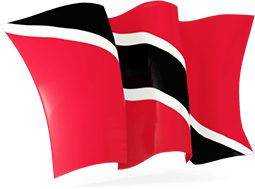

MEDIA RELEASE - JULY 19th, 2020
STATEMENT ON THE COUNCIL'S DELIBERATION
Trinidad and Tobago can boast of having a history of electoral peace. The civil and political liberties of citizens have always been paramount, resulting in citizens being tolerant of divergent opinions and choices, in an environment where elections are free and fair and free from fear. These are but the objectives of the Code of Ethical Political Conduct which more than a dozen active political parties have ratified as their leaders signed on to the Code over the last six years.
The Code further reiterates that notwithstanding the landscape and our proud history, there are many pitfalls which we must continuously be on guard to avoid, if only to ensure the continued perspective of a level playing field for each and every political party as well as each and every candidate. It is in this context that the Council was dismayed to see a state institution, undertaking legitimate activities but seemingly allowing itself be become engrossed in partisan politics and politicking. Here reference is made to the Self-Help Commission which, in the distribution of grants, seemingly invited only prospective candidates of the Peoples National Movement to assist in the distribution process. Moreover, these prospective candidates, who hold no official position in the government, were specifically called upon to make presentations to recipients residing in the constituency in which they would be contesting the election. It was also evident that the Chairman of the Commission, when approached by the media for a comment, found it difficult to provide a consistent, plausible explanation about why only PNM candidates were invited to participate in the function.
The Code of Ethical Political Conduct, in the section titled PROHIBITED CONDUCT, calls on Parties, candidates and supporters to abide by the following clauses:
-
Not permit the use and abuse of State resources for political campaigns.
-
Not use funds derived from any source, public or private, to improperly influence electoral choices.
-
Not abuse a position of power, privilege or influence, including parental, patriarchal, traditional or employment authority to influence the conduct or outcome of an election.
-
Not offer any inducement or reward, for example money, groceries or other benefits, to
-
another person to -
-
Join or not to join a Party;
-
Attend or not to attend a public meeting, march, demonstration, rally or other public political event;
-
Vote or not to vote, or to vote or not to vote in any particular way.
-
It is in this context that the actions of the state institution of the Self-Help Commission must be deemed to be a clear violation of the Code.
Now that we have passed Nomination Day, and the country is clear as to the Parties and Candidates contesting the elections, the Council calls on ALL Parties, Candidates and supporters to protect our proud history of a peaceful and clean election campaign. Thus far, the majority of Parties and candidates have maintained their respect for the Code in regard to their language and actions. Notwithstanding this however, we all must be ever vigilant to ensure that the highest ethical conduct is preserved in the remainder of this election campaign, and the Council invites all citizens to join with us in monitoring the conduct of the key actors in this elections. Should members of the public have any concerns about the ethical conduct of any political party, candidate, supporter or citizen at large, we implore you to please communicate such concerns to the Council so that such concerns can be investigated and the population advised on any possible breaches of the Code. Please send your concerns/complaints/queries and supporting information to the Council via email to: info@politicalethicstt.org
Respectfully submitted on behalf of the Council,
Dr. Bishnu Ragoonath, Chair
